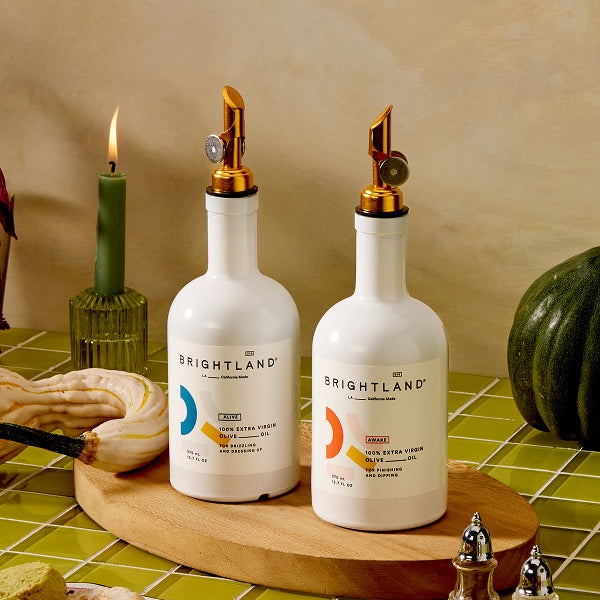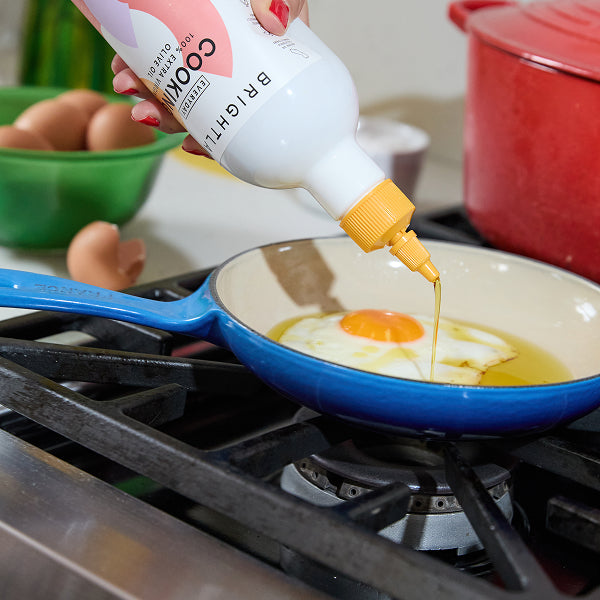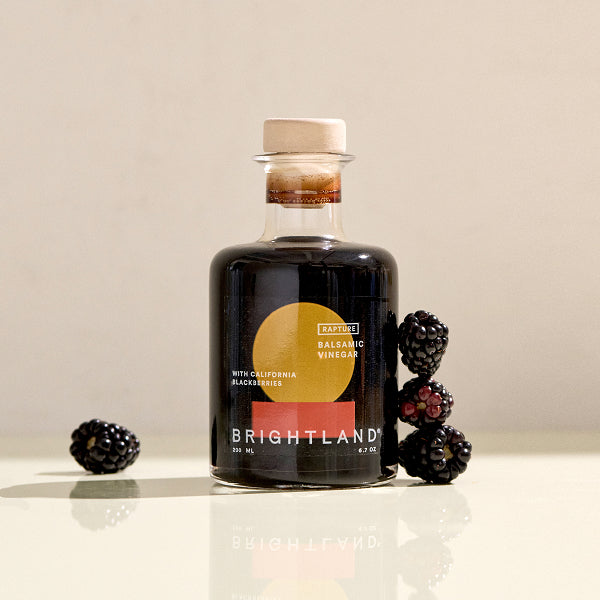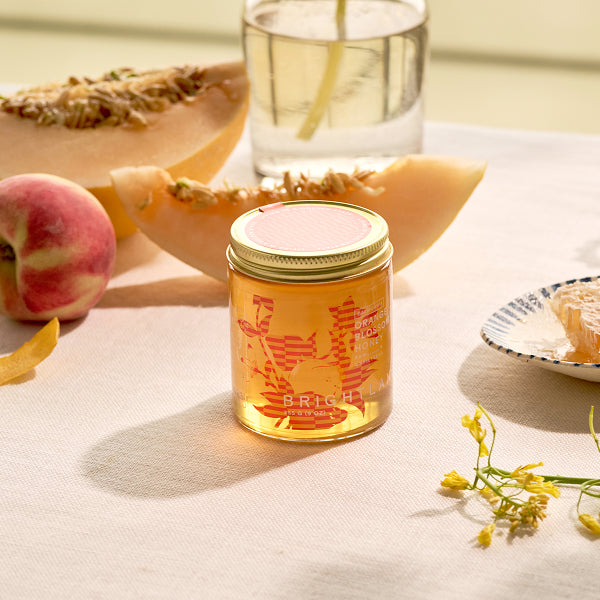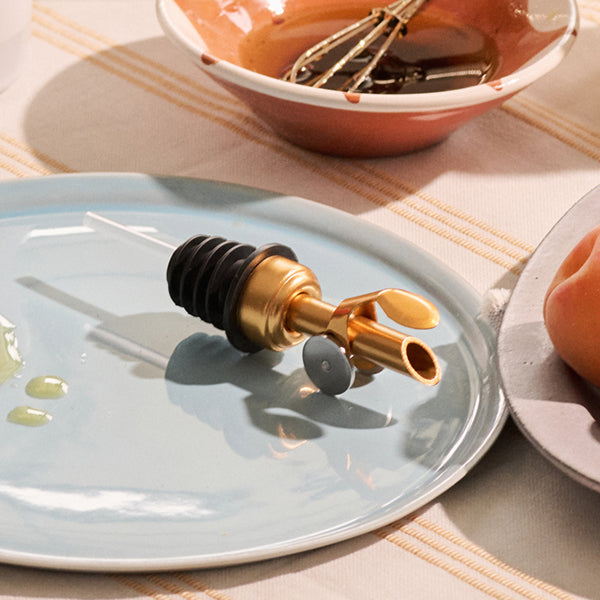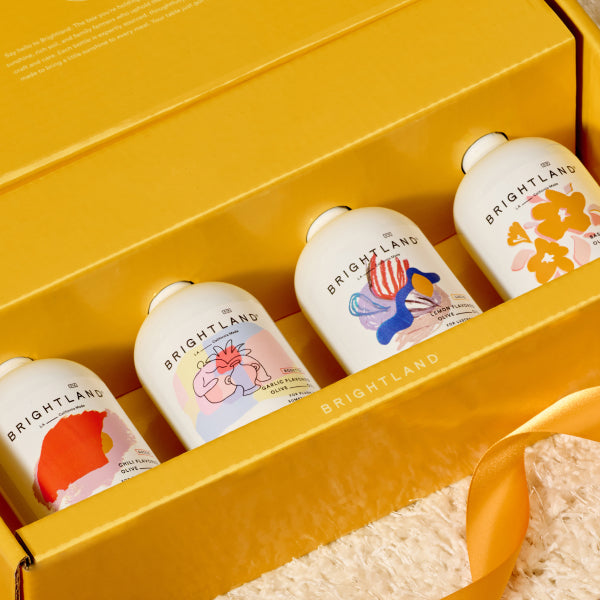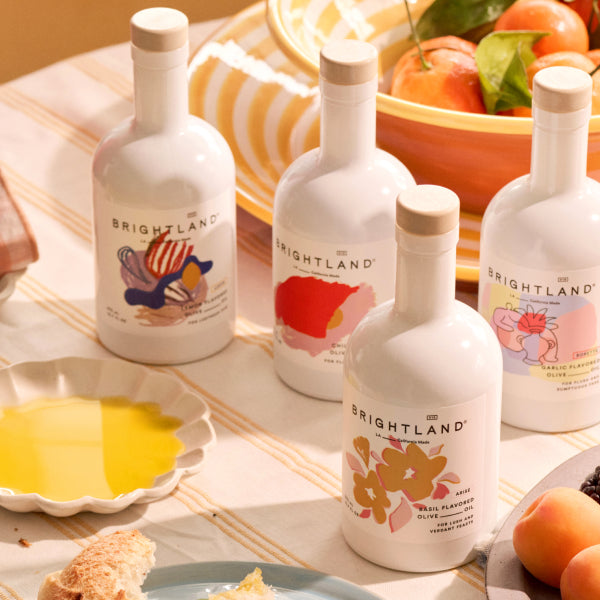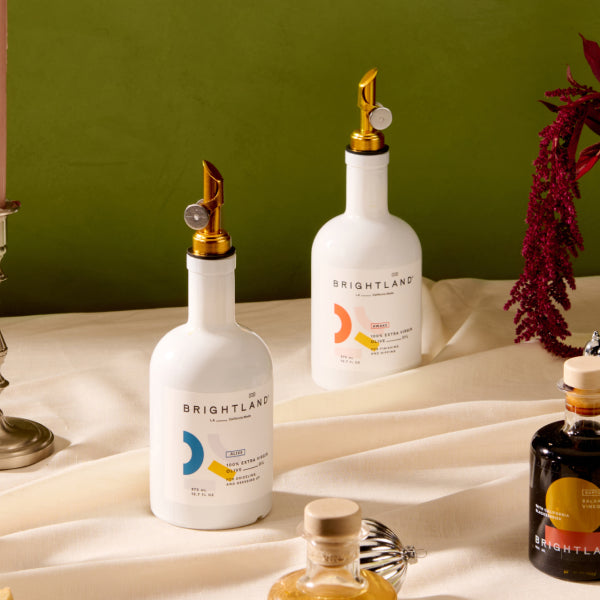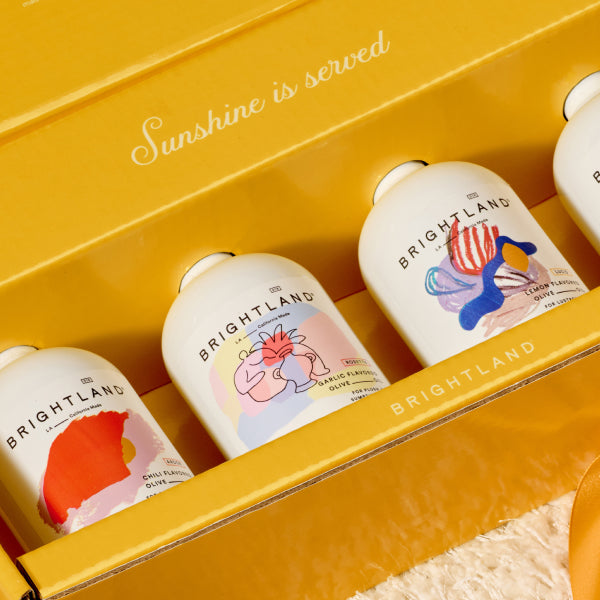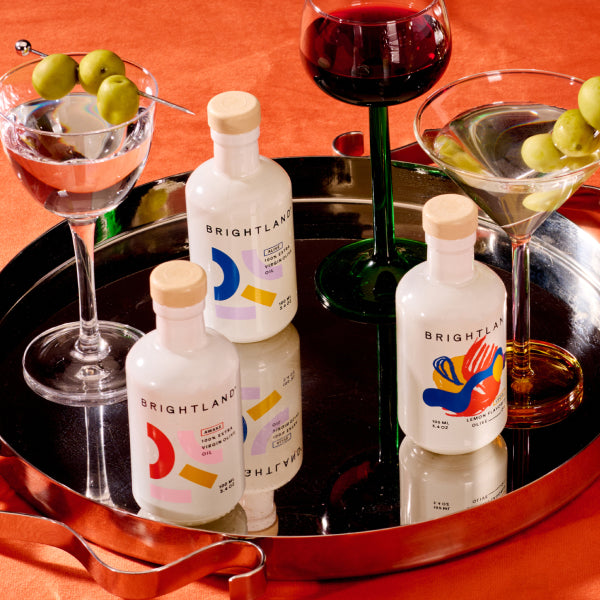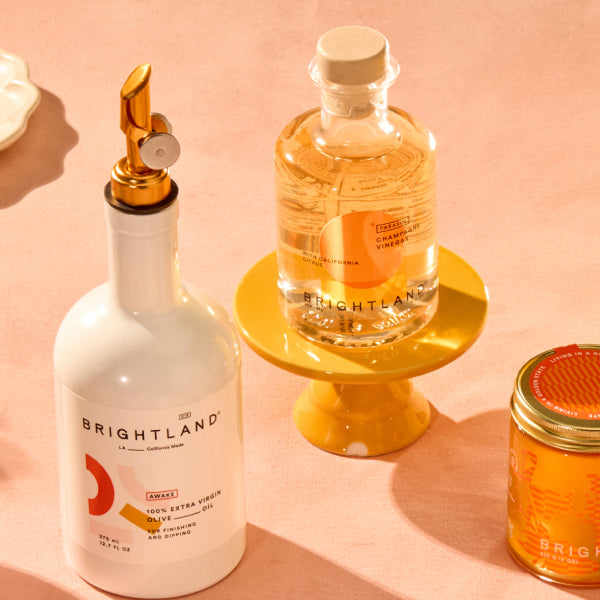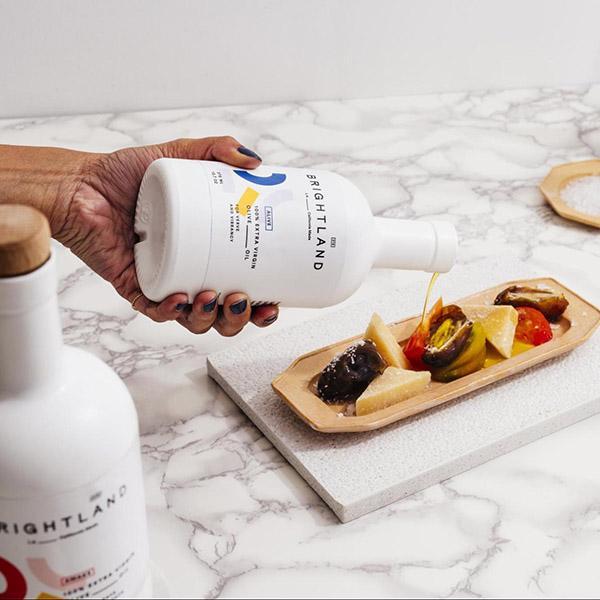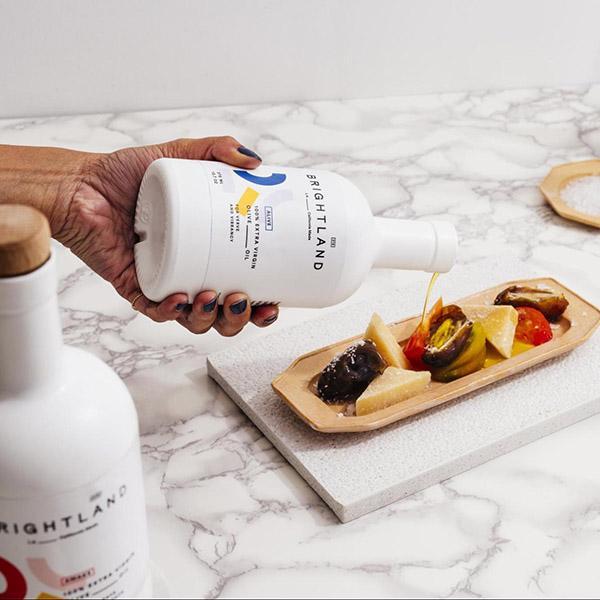For many types of oil, including olive oil, suppliers have begun affixing the term “cold press” to their labels. So what is cold-pressed extra virgin olive oil and does this marketing term actually mean anything? We explain the history of pressing olive oil and whether “cold press” lives up to its marketing hype:
The History of Pressing Olive Oil
After olives are harvested and washed, they are ground into a paste and then kneaded to encourage the oils to express. Because olives contain both watery juice and oil, these substances need to be extracted and separated, which is where pressing comes in.
Historically, olives were pressed through manual force, first using a series of disc-shaped mats stacked on top of each other, and then later a screw press. While there are hydraulic piston presses available today — the modern day upgrade of the screw press — now many olive oils are pressed using a centrifuge instead. These devices spin the olive pieces super fast in a drum. The intense spin presses the olives against the side of the drum, forcing the oils out of them. Pressing olive oil via centrifuge is much less messy and more efficient, resulting in less olive oil being lost in the process.
[close type="rte"] [open type="images" count="1"]
Hot Press vs. Cold Press
Sometimes the pressing process involves heat as well as pressure. In some cases, this heat is a natural byproduct of the pressing process and is caused by the machinery’s natural workings. In other cases, heat may be deliberately increased during the pressing process in order to refine the olive oil or otherwise alter its natural properties. This is what the term “hot press” means, if you have ever seen that label applied to olive oils.
On the other hand, “cold press” theoretically refers to olive oil that has not been subjected to such heat. When olives are cold pressured, the temperature of the machinery is carefully monitored to keep it below a certain threshold. This prevents too much heat from interfering with the pressing process and ensures that the resulting olive oil has all the natural properties of olives.
That being said, the term “cold press” is not regulated in the U.S. and is often applied for marketing purposes only. Just because an oil is advertised as being “cold-pressed” does not actually tell you much about how the oil was extracted, so be wary of these claims. A “cold-pressed” label is not enough on its own to ensure that you are purchasing high-quality olive oil.
[close type="rte"] [open type="images" count="1"]
Should You Buy Cold-Pressed Olive Oil?
For any oil — including olive oil — applying heat at any step of the production process will alter the character of the resulting oil. In certain cases, this may be seen as a positive thing, such as removing unpleasant tasting notes from a cheap vegetable oil. However, when it comes to olive oil, excessive heat can remove many of the characteristics that make olive oil unique. Heat can alter the peppery taste and pleasant mouthfeel of olive oil, and it can also reduce the amount of antioxidants and polyphenols — both of which are major contributing factors to the health benefits of olive oil.
For the best result, choose an olive oil that has been harvested without the excessive use of heat. However, just because an oil is labeled “cold press” does not mean that it has not been subjected to heat. Furthermore, it is important to keep in mind that the pressing method is not the only factor that makes a high-quality olive oil. The final olive oil is dependent on many elements, including the types of olives used, when they are picked, how they are harvested, how the oil is packaged and stored and more.
If you want to buy olive oil that is truly as high quality as it claims to be, then buy California extra virgin olive oil from a brand such as Brightland. Because our olives are harvested right here in the U.S., that gives us much better quality control over the entire process. We are very hands-on to check that nothing — whether it is excessive heat or another factor — interferes with the quality of our products. Find your new favorite olive oil today.
[close type="rte"]

